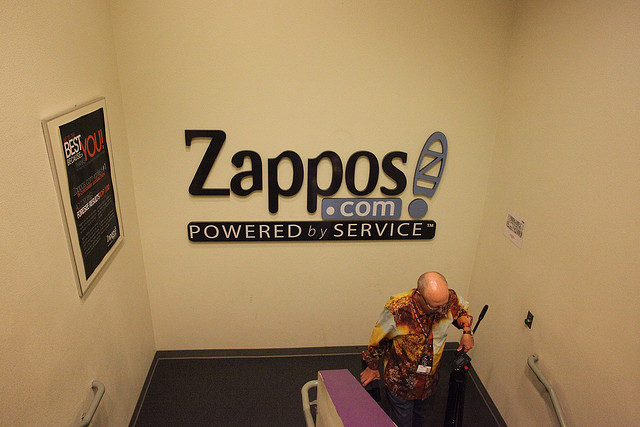Many C-suite insurance executives complain about how difficult it is to find leaders in their organization. Many people believe leadership can't be taught. "You know it when you see it" is a common observation. Finding a consistent definition for leadership is difficult.
How do you develop/teach/articulate a core set of traits of great leaders if it is so difficult to even define leadership? After leading various organizations ranging in size from several people to several thousand, I realize that there are fundamental core requirements needed to be an effective leader. Whether you are an entry-level employee or the chief executive of a large organization, you need these characteristics to lead.
Leadership doesn't come from your title. It comes from how you act. People follow leaders; they don't follow titles. As technology allows companies to be leaner, and as Millennials become a bigger part of the work force, we live in a less hierarchical and more collaborative work environment. Leadership no longer comes with a title. Today, companies need leaders at every level.
You don't need to be outgoing or have the loudest voice in the room. People with low-key personalities can also be outstanding leaders. Personal leadership is not about self-promotion; leadership is the ability to get others to follow what you are advocating. To trust you. To respect you. To feel that your direction and requests are in everyone's best interests, not just your own.
So what are the traits of great leaders? Here are five core personal leadership competencies that anyone must practice to be an effective leader.
1.
Integrity: Make sure you do the right thing for all the right reasons. In any leadership role, you will be called on to make difficult decisions. If you act with integrity, you will be respected. People might disagree with your decision, but they will accept your direction. One of my mentors told me, "People can spot someone who takes moral shortcuts." Never forget: A reputation lost is a career destroyed.
2.
Courage: All leaders have courage. The courage to ask why. To challenge the status quo. To go out on a limb. To do what others are afraid to say and do. Many years ago, when eight bottles of Tylenol were found to have been tampered with, leading to seven deaths from cyanide poisoning in the Chicago area, the CEO of Johnson & Johnson, which produced Tylenol, immediately directed that all bottles of the pain reliever be removed from every shelf in every store. He vowed that Tylenol wouldn't be back on store shelves until the company knew that every bottle was safe. It was a bold move with a large negative impact on the company’s short-term sales. But when Tylenol did return to the counters and shelves, so did their customers.
3.
Lead by example: Don't ask anyone to do something you wouldn't do yourself. If you are asking others to stay late, you had better, too. When I ran a new business unit, our initial office space couldn't accommodate an office for everyone. So I sat down with my senior team, and
we defined objective criteria for an office. I didn't qualify, and, much to everyone's surprise, I sat in a cubicle alongside the other employees. It made a statement -- I play by the same rules as everyone else. Likewise, any rule or policy we adopt, I make sure I also abide by. You can't act one way and expect others to act differently. You have to be a role model.
4.
Be a great listener: You can't understand what's going on around you unless you listen to others. Listening is how you learn. Listening is how you gain perspective. Listening is how you understand what's important and what's not. Listening is how you discover opportunities. A good listener sends a strong message to others: “I respect and care about what you say. I'm not a tyrant.” Throughout my career, the best ideas always came from people closest to the core operations I was looking to improve. You can't find those answers unless you ask a lot of questions and listen carefully to the answers.
5.
Be a great communicator: Leaders learn to master the
form and
substance of communication.
Let's start with the form of communication: the way you communicate. You can't lead unless people understand you. Language, tone, facial and other physical expressions all send messages that affect what you are saying. (This also applies to listening. If you look away while people are talking they know you are not listening.) Here are a few tips to master good communication form:
- Keep your message clear and concise. We live in a world of short attention spans. People get drawn away quickly. Spend time thinking about what you want to say and how best to communicate it quickly. I like to pretend I only have 30 to 60 seconds to talk. That forces me to get right to the point.
- Use examples. They reinforce your points by tying them to real life instead of dry theories.
- Think like a teacher. Great communicators understand that, when they are speaking to someone or to a group, they are in effect teaching others what they want them to understand.
Mastering the substance of communication means the ability to move people to react to what you are saying in the way you want. In other words, you want your words to motivate, educate and inspire. By
motivate, I mean the ability to get people to want to do something as a result of what you say. Your words ignite your listener to want to react in the way you desire.
Educate means you explain why you are asking them to do something. People will follow direction -- but only grudgingly if they don't understand why they are being asked to do something. Good leaders know how to get people to understand why they should take a specific action.
Inspire means the ability to touch someone with your words. Engender a positive emotion that enables them to do something they otherwise might not have done. Inspirational leaders provide the fuel to allow others to find success.
Today's ever-changing work environment is creating opportunities for people at all levels of an organization to lead. Those who master the personal leadership competencies that I've described will enrich their work experience and create wonderful opportunities for themselves and others. Enjoy the journey.








